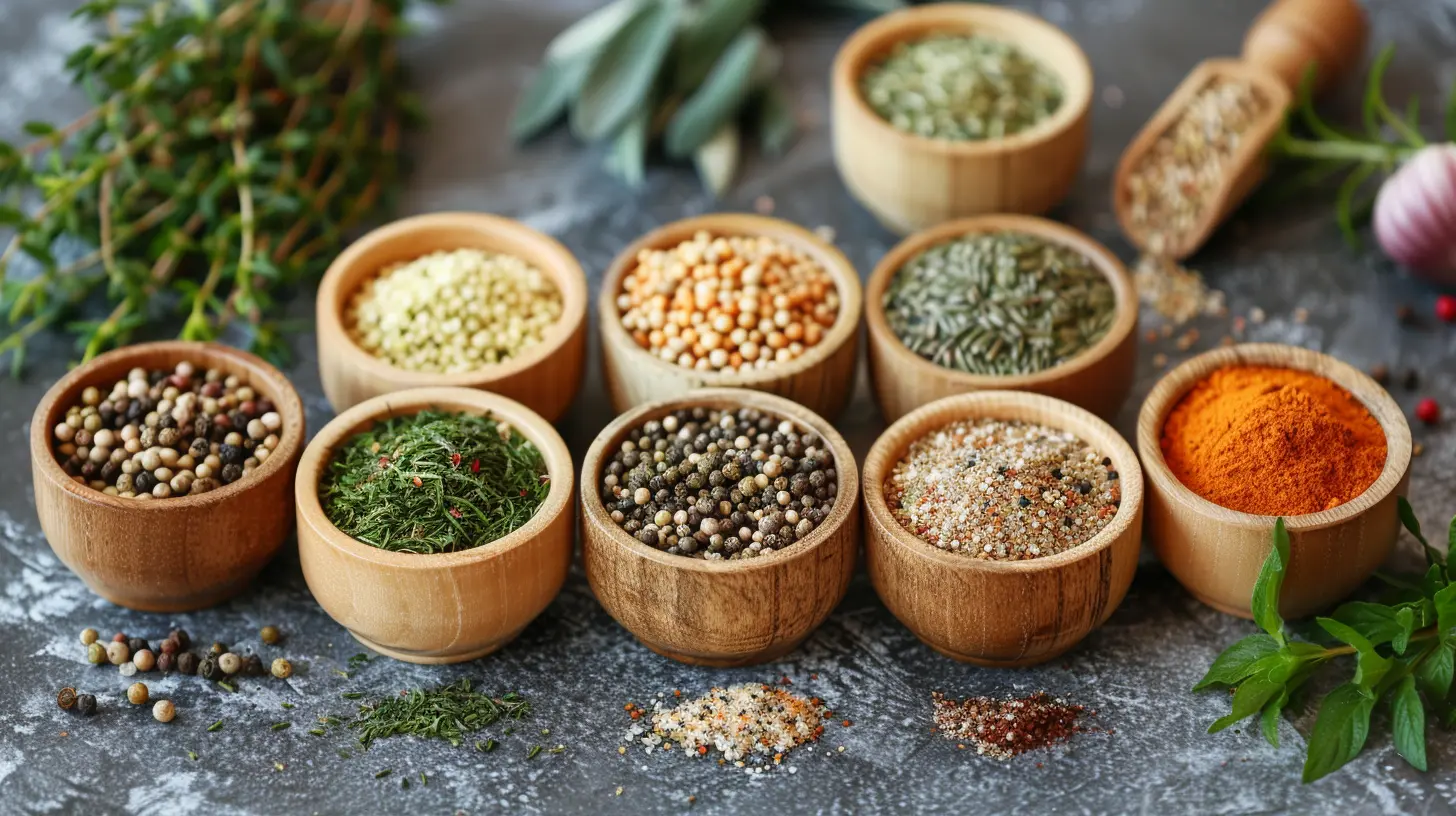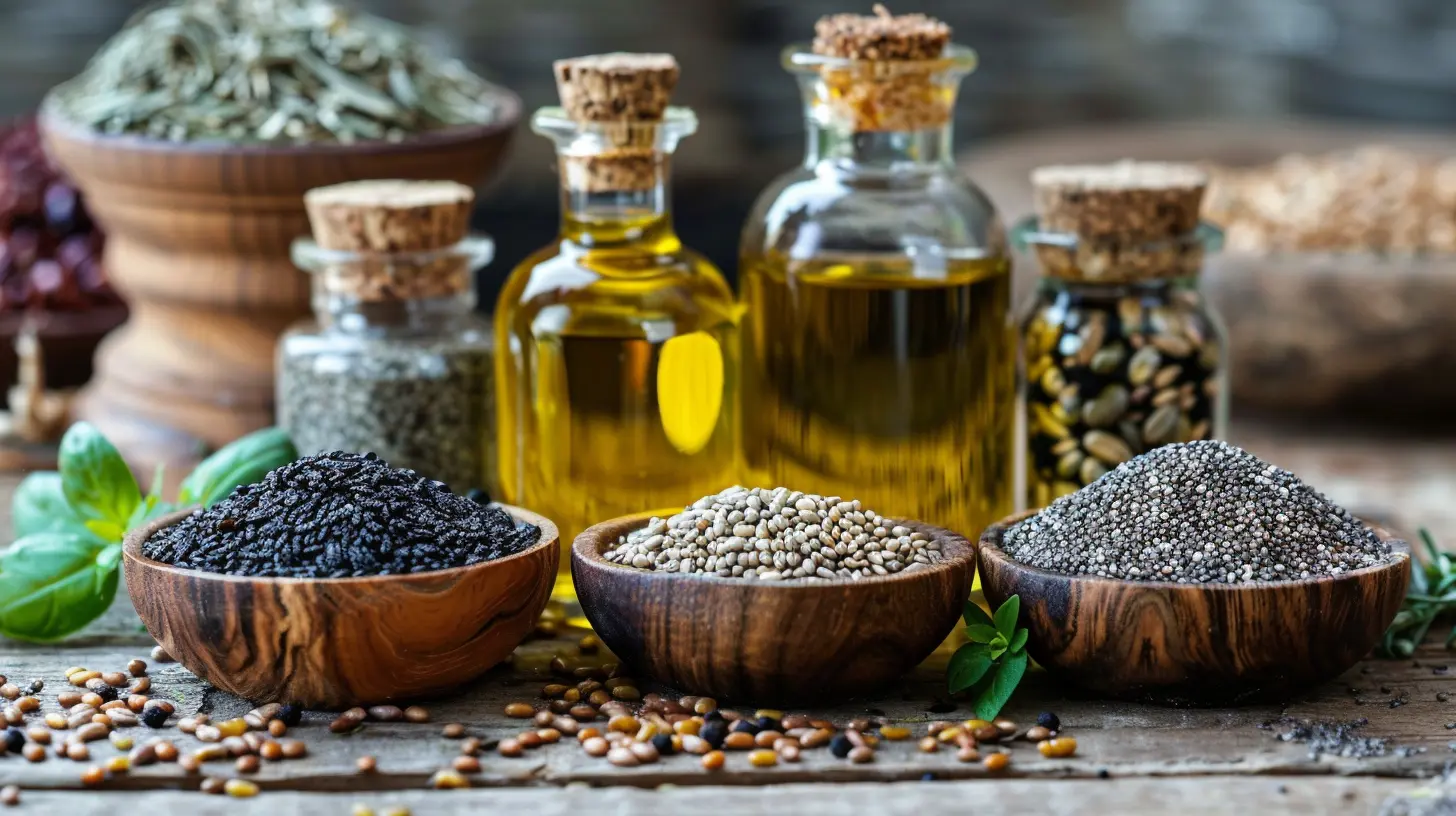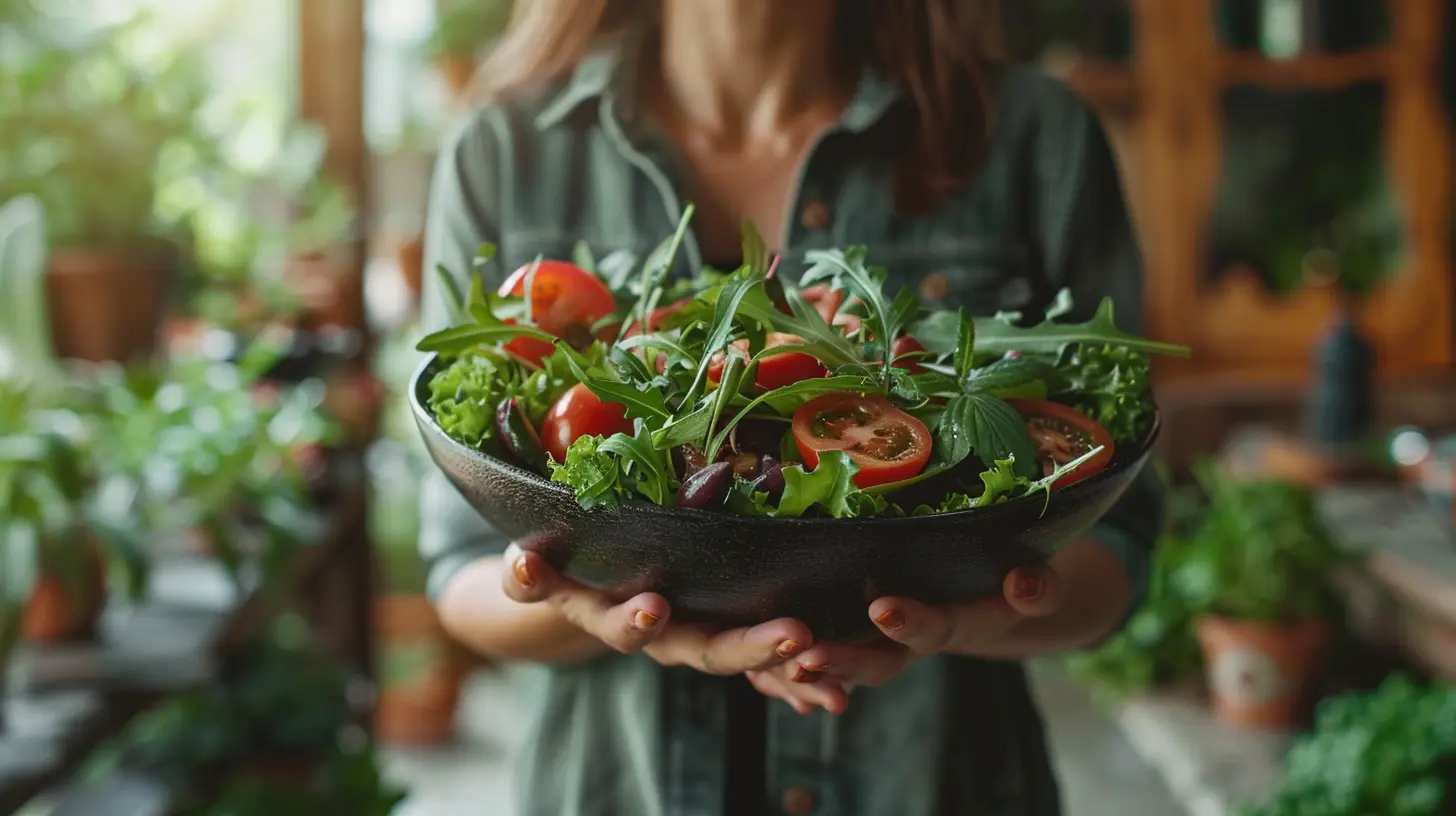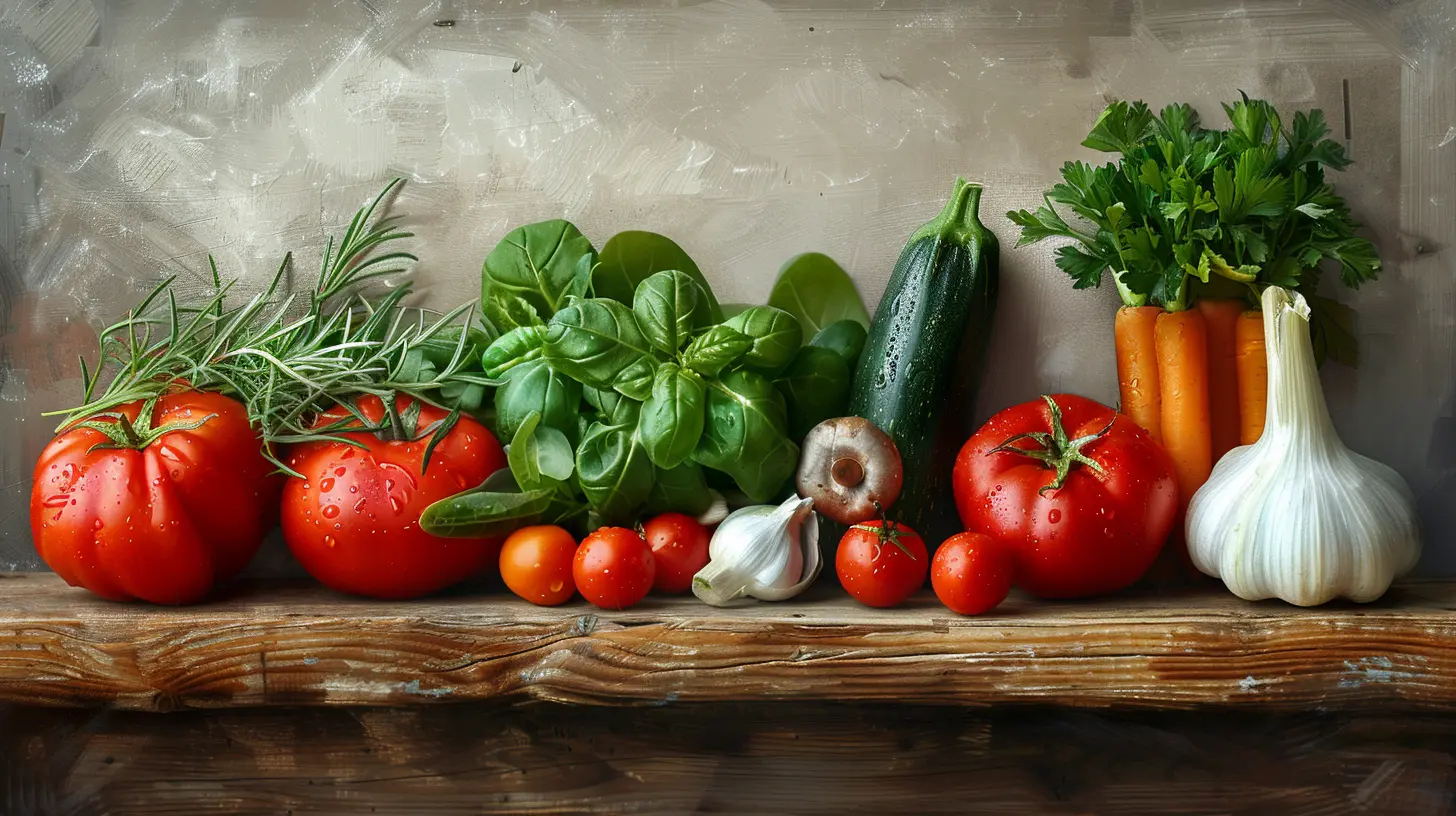How to Manage Inflammation Through Plant-Based Nutrition
1 November 2025
Ever feel like your body is constantly at war with itself? Maybe you wake up feeling achy, sluggish, or bloated for no clear reason. Or perhaps you’ve been told you have chronic inflammation, but you’re not sure what that really means—or how to fix it.
Well, here’s a bit of good news: managing inflammation doesn’t necessarily begin at your pharmacy. It can start right on your plate. And the secret weapon? A plant-based diet. Yep, what you eat can either fan the flames of inflammation or help put the fire out.
In this article, we’re diving deep into how plant-based nutrition can help you tackle inflammation naturally. And don’t worry, I’ll keep things super simple, practical, and (hopefully!) a bit fun.
What Exactly Is Inflammation?
Before we jump into leafy greens and legumes, let’s get clear on what inflammation actually is.Inflammation is your body’s natural way of protecting you. You twist your ankle? Boom—your immune system dispatches troops (aka white blood cells) to heal the damage. This kind of acute inflammation is good and necessary.
But chronic inflammation? That’s a whole different beast. It’s like your body’s alarm system glitching and going off 24/7—even when there’s no real threat. Over time, this silent fire inside you can lead to major health issues, including:
- Heart disease
- Type 2 diabetes
- Obesity
- Arthritis
- Autoimmune conditions
- Even cancer
That’s why keeping chronic inflammation in check is so important—and food plays a starring role in that story.
How Diet Fuels (or Fights) Inflammation
You’ve heard the phrase “You are what you eat,” right? Well, when it comes to inflammation, that couldn’t be more true.A diet high in processed foods, sugar, saturated fats, and additives tends to crank up inflammation. Think fast food, soda, bacon, packaged snacks, and sugary cereals—not exactly kindling for good health.
On the flip side, a whole-food, plant-based diet acts like the fire extinguisher. It’s packed with nutrients and compounds that naturally lower inflammation and help your body heal.
So what makes plants so powerful?
Anti-Inflammatory All-Stars in Plant-Based Foods
Let’s shine a spotlight on the real heroes in plant-based nutrition that help your body fight inflammation:1. Antioxidants: Your Body’s Defense System
Fruits and veggies are loaded with antioxidants. These are like tiny bodyguards that protect your cells from damage caused by free radicals (those nasty little molecules that spark inflammation).For example:
- Berries have anthocyanins
- Kale and spinach pack in flavonoids
- Tomatoes are rich in lycopene
Eat the rainbow, and you’re basically giving your immune system a superhero cape.
2. Fiber: The Gut-Inflammation Connection
Did you know your gut health is tightly linked to inflammation? Surprise!A healthy gut microbiome (aka your “good” bacteria) helps regulate immune response and lower inflammation. Fiber-rich foods feed those good bugs, keeping your gut—and the rest of you—happy.
Great sources of fiber include:
- Beans, lentils
- Whole grains
- Fruits like apples and pears
- Veggies like broccoli and carrots
Bonus? Fiber also helps keep your blood sugar stable, which is another key piece in the inflammation puzzle.
3. Omega-3 Fatty Acids: Nature’s Ibuprofen
You’ve probably heard of omega-3s as found in fish, but guess what? You can get plant-based omega-3s too—mainly alpha-linolenic acid (ALA).Top plant-based sources include:
- Chia seeds
- Flaxseeds
- Walnuts
- Hemp seeds
Sprinkle them on your oatmeal or toss them in a smoothie, and you’re doing your joints and cells a major favor.
4. Phytonutrients: Tiny Compounds, Big Impact
These naturally occurring compounds give plants their color, flavor, and disease resistance—and they help us too.Curcumin (found in turmeric), sulforaphane (in broccoli and Brussels sprouts), and resveratrol (hello, grapes and red wine!) have all been studied for their anti-inflammatory effects.
So yeah—eating plants isn’t just about being “healthy,” it’s about arming your body with a botanical pharmacy.
Foods That Fan the Flames (To Avoid)
Alright, now that we know what to eat, let’s talk about what to avoid—or at least cut way back on.Some of the biggest diet-related culprits for inflammation include:
- Refined carbs (white bread, pastries)
- Added sugars (think sweetened drinks, candy, most cereals)
- Trans and saturated fats (fried foods, packaged snacks, fatty meats)
- Processed meats (bacon, sausage, deli meats)
- Dairy (in some cases, especially highly processed cheese)
- Alcohol (sorry, wine lovers—moderation matters)
Basically, if it comes in a shiny wrapper and lasts for months on a shelf, it’s probably not doing your immune system any favors.
Sample Plant-Based Anti-Inflammatory Meal Plan
So what would a typical anti-inflammatory day on a plant-based diet look like? Here’s one tasty possibility:🌞 Breakfast:
- Oatmeal topped with blueberries, walnuts, and ground flaxseed- Green tea or warm water with lemon
🍽️ Lunch:
- Quinoa bowl with chickpeas, kale, cherry tomatoes, avocado, and tahini dressing- A side of sauerkraut or kimchi for those probiotic benefits
🕒 Snack:
- Apple slices with almond butter- A handful of pumpkin seeds
🌙 Dinner:
- Lentil and veggie stew with turmeric and garlic- Whole grain bread or sweet potato on the side
- Mixed greens salad with olive oil and lemon
And hey, if you need dessert? Try baked cinnamon apples or a square of dark chocolate (70% or higher, because we’re fancy like that).
Lifestyle Tips to Boost the Benefits
Sure, food is the foundation, but managing inflammation holistically gives you a bigger bang for your buck. Here’s what else can help:- Stay active – Even gentle movement like yoga or walking helps.
- Get good sleep – Poor sleep can lead to higher inflammatory markers.
- Manage stress – Chronic stress = chronic inflammation. Try meditation, deep breathing, or journaling.
- Stay hydrated – Water helps flush out toxins and keeps your cells functioning optimally.
It’s all connected. Think of your lifestyle as a symphony, and your food as the lead instrument.
But Wait… Is Plant-Based Nutrition for Everyone?
You might be wondering, “Do I have to go full vegan?”Short answer: No. You don’t have to slap a label on it or go from steak to sprouts overnight.
A plant-based diet simply means most of your food comes from plants. If you still occasionally eat meat or dairy, that doesn’t cancel out all the good stuff you’re doing. It’s about more plants, less junk.
Even shifting to a 70–80% plant-based eating pattern can have powerful effects on inflammation and overall health.
It’s not all or nothing—it’s progress over perfection.
Final Thoughts: Your Plate, Your Power
At the end of the day, your kitchen is one of the most powerful places you can influence how you feel. Every bite you take is like a message to your body: “Keep fighting” or “Cool it down.”The beauty of using plant-based nutrition to manage inflammation is that it’s gentle, sustainable, and deeply nourishing—not just for your body, but for the planet too.
So the next time you’re staring into your fridge wondering what to eat, ask yourself: “Will this fuel the fire… or put it out?”
Then grab the spinach. Add the chickpeas. Toss on the turmeric. Your future self will thank you.
all images in this post were generated using AI tools
Category:
Plant Based DietAuthor:

Tiffany Foster
Discussion
rate this article
1 comments
Isabelle McCollum
Thank you for sharing this insightful article on managing inflammation through plant-based nutrition. Your tips and evidence-based approach provide valuable guidance for those looking to improve their health. I appreciate the emphasis on whole foods and practical strategies for incorporating them into our diets.
November 3, 2025 at 5:24 AM

Tiffany Foster
Thank you for your kind words! I'm glad you found the article helpful and informative. Your feedback means a lot!


